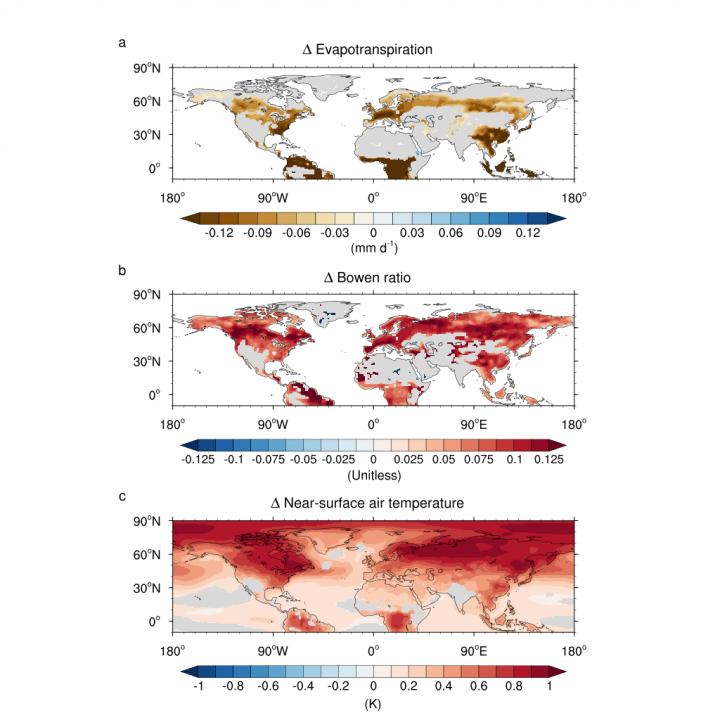
Credit: Jong-Seong Kug (POSTECH)
The vapor that plants emit when they breathe serves to lower the land surface temperature, much like watering the yard on a hot day. Until now, the greenhouse effect has been blamed for the rise in global temperature. But an interesting study has shown that the Artic temperature rises when the moisture released by plants is reduced due to the increase of carbon dioxide (CO2 ) in the atmosphere.
The joint research team led by Professor Jong-Seong Kug and doctoral candidate So Won Park of POSTECH’s Division of Environmental Science and Engineering, and Researcher Jin-Soo Kim of the University of Zurich has confirmed that the increase in atmospheric CO2 concentration closes the pores (stomata) of plants in high-latitude areas and reduces their transpiration, which ultimately accelerates Arctic warming. The findings, which were studied through the Earth system models (ESM) simulations, were recently published in Nature Communications, an authoritative journal in science.
Plants take in CO2 and emit oxygen through photosynthesis. During this process, the stomata of leaves open to absorb CO2 in the air and release moisture at the same time.
However, when the CO2 concentration rises, plants can absorb enough CO2 without opening their stomata widely. If the stomata open narrowly, the amount of water vapor released also decreases. When this transpiration of plants declines, the land temperature rapidly rises under greenhouse warming. Recently, such a decrease in transpiration has been cited as one of the reasons for the surge in heat waves in the northern hemisphere.
This response from the vegetation leads to the global climate change by controlling the exchange of energy between the surface and atmosphere, referred to as ‘physiological forcing.’ But so far, no study has confirmed the effects of physiological forcing on the Arctic climate system.
The joint research team analyzed the EMS simulation and confirmed that the increase in CO2 leads to stomatal closure in land vegetation causing land warming, which in turn remotely speeds up Artic warming through an atmospheric circulation and positive feedback in Earth systems process.
In addition, a quantitative estimate of the stomatal closure’s effect on Arctic warming due to increased CO2 showed that about 10% of the greenhouse effect is caused by this physiological forcing.
Professor Jong-Seong Kug, who has studied Arctic warming in a variety of perspectives, commented, “The stomatal closure effect due to the increased CO2 levels is not fully counted in the future climate projection.” He pointed out, “This means that Arctic warming can proceed much faster than current forecast.” He also warned that “the increase in CO2 is accelerating global warming not only through the greenhouse effect that we all knew of, but also by changing the physiological function of plants.”
###
This research was financially supported by the climate feedback research in the land-ocean biogeochemistry division of the National Research Foundation of Korea.
Media Contact
Jinyoung Huh
[email protected]
Original Source
http://postech.
Related Journal Article
http://dx.




